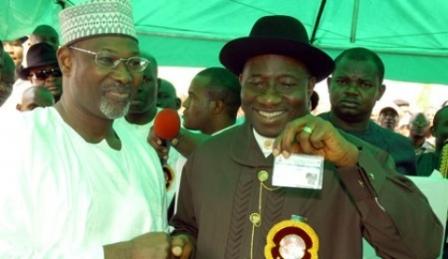The only way the Presidency can support the six-year single term proposal for President and governors given by the Senate Committee on Constitution amendment is that if such an amendment will take effect from 2019.
This was made known by the Special Adviser to the President on Political Matters, Dr. Ahmed Gulak, while featuring on a Channels Television programme, Sunrise on Monday morning.
This contrasts with an earlier statement made by Gulak on May 1 when he said President Goodluck Jonathan was ready to forget his ambition to run for second term in 2015 if the proposal for a single non-renewable six-year tenure sailed through.
He reiterated it an interview with daily newspaper, The PUNCH that Jonathan’s ambition to stage a return would be shelved if Senators decided in favour of a single term for the President and governors.
The Presidential aide had said, “Nigerians will remember that it was President Jonathan that suggested an idea of a single term from the beginning. So if the proposal becomes a law, the credit should go to the President.
“If it becomes a law and is enshrined in our constitution, the President and everybody will be bound by the provision of that law. We are not seeing the move as a way of stopping the President from re-contesting in 2015. The law cannot be made because of one individual. When it takes effect, everybody will be bound by it.”
But on Monday, Gulak hinged support for the single tenure amendment on 2019 commencement date, saying that it would give President Jonathan and first term governors the opportunity to contest the 2015 elections.
Gulak said by 2019, the President and state governors who are currently serving their first term of four years would have completed their second and final term as allowed by the 1999 Constitution.
He said with the amendment taking off in 2019 , the country would then start on a clean slate with the President and governors that would emerge then already aware that they would serve only a single tenure of six or seven years as the case may be.
Gulak insisted that denying the incumbent President and first time governors the opportunity of participating in the 2015 elections would be unfair to them since the constitution under which they were elected allows them to contest a maximum of two terms.
He said, “The President has the single tenure idea and he still stands by it. The difference is that the amendment should not be in such a way that it will be targeted at a group of people.
“The committee’s proposal is that those incumbent governors and the President who are supposed to enjoy second term will not participate.
“What we are saying is that laws are not amended to target a particular group of people. It could have been okay if all those first term governors are allowed to participate, and after 2019, anybody coming in will know that he is going to be elected under the amended constitution.
“As it is today, it appears that the first term governors will be shortchanged because their rights to be re-elected or to contest under the 1999 Constitution as amended would have been abridged if this proposal goes through.
“Is it proper to shortchange them when they were elected under a constitution that allows them two terms of four years each? That is the crux of the matter.”
Gulak explained that Jonathan agreed not to benefit from the single tenure proposal when he moved the idea because he believed that the amendment would commence after he or the governors might have finished their second term.
He expressed the belief that the proposal would not scale through since the process involved in amending the constitution was a long one.
He was confident that party politics would come to play at the appropriate time.
He also spoke on the proposal by the Chairman of the Peoples Democratic Party Board of Trustees, Chief Tony Anenih, for the party’s automatic tickets for the President and first term governors, saying that the suggestion was his (Anenih ) personal opinion.
He said since the party’s constitution recognised primary elections, automatic tickets were not the position of the party and that of the President.
Gulak said, “One of our leaders was the one who said his opinion. That was his opinion; it was not the opinion of the party. It happens all over the world. In the United States, Barack Obama did not contest primary election in his party when he was running for a second term.
“If we are to follow the US option, it therefore means that the incumbent President or governors should be given the first choice of refusal but here we are in Nigeria, in 2011, the President was subjected to primary when he was an incumbent President.”
Meanwhile, Afenifere, the pan Yoruba socio – political group, has described as improper, any move that could exclude the President and first term governors from seeking releection.
Secretary General of the group, Bashorun Seinde Arogbofa, in an interview with our correspondent in Akure, said, “It is not proper to make laws that would favour some people and exclude some others. We should not give excuse to legitimise illegality.”
Arogbofa noted that Afenifere had never supported the fact that the National Assembly should amend the constitution on behalf of Nigerians because most of the members were not the real representatives of the people.
He however described the single term proposal as commendable as it would reduce the problems usually identified during second-term struggle by elected politicians at the federal, state and council levels.

